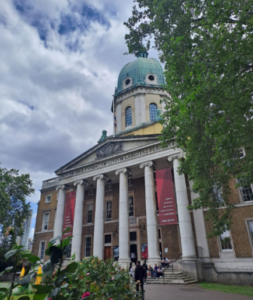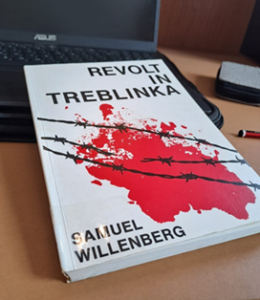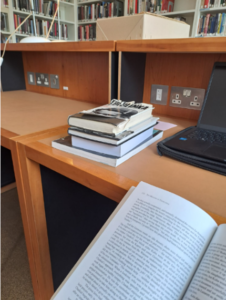My name is Isabel Locke, and I am a fourth-year history student at the University of Birmingham, who has just completed a year abroad in Hong Kong and now, has undertaken the Collaborative Research Internship.

My project was Antisemitism in Post Migrant Britain, which focused on educational learning in the UK and Ukraine, concentrating on eastern European communities who, from survey findings, have higher levels of antisemitism. The role as an intern was to research on two topics from the Holocaust in Eastern Europe, to help educate young students from 14 to 18 years old.
The topics I chose was the Treblinka Uprising in August 1943 and Deportations in Romania. We had to conduct extensive research on our topics and then condense it down to a few pages, whilst making it appropriate for young students, as well as providing suitable images, testimonies from survivors and annotated resources. We split these annotations into two categories: one was for teachers to gain a deeper background knowledge and further reading, while the other were sources suitable for the classroom and easy to access.

This research I found very interesting because it helped develop a less Auschwitz centric narrative of the Holocaust, and highlighted non-German perpetrators which is not taught often enough in education. I focused on the Jews as well as other persecuted groups such as the Roma in Romania, and the role of women in the Treblinka death camp which is something I had never learned about before. Highlighting the theme of resistance was key to these topics as well as humanising the victims, bystanders, and perpetrators.

As part of my research, I visited the Imperial War Museum and then the Wiener Holocaust Library, to gain a deeper background and more insight into these events. It was at the Wiener Holocaust Library where I read multiple books on firsthand accounts of the Treblinka Uprising, where only an estimated 67 survived to the end of the Second World War, which made this academic research even more essential.
In addition to the research, we also had to present our ideas in an online workshop where we explained what we were researching and what we would do to make it suitable for students aged 14-18. This consisted of Holocaust education specialists with a focus on participants from the UK and Ukraine, where we received feedback on what was good and how to improve; there was a discussion on the best educational resources to use. Key organisations involved included the Holocaust Memorial Day Trust and the Holocaust Educational Trust which also conducts the Lessons from Auschwitz project, and so it was a real opportunity to convene with them.
It has been a privilege to be a part of a project that educates young people on the Holocaust, and in doing so, fights against antisemitism.
Isabel Locke, BA History
